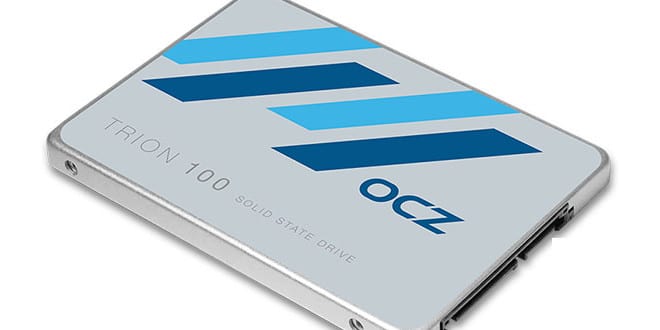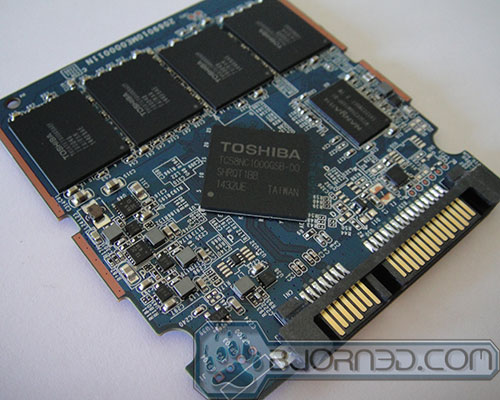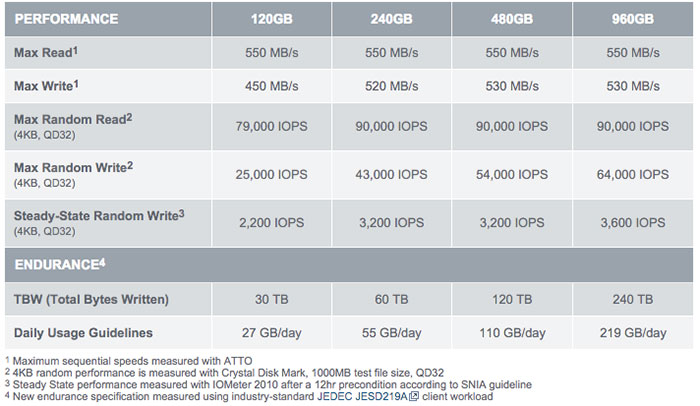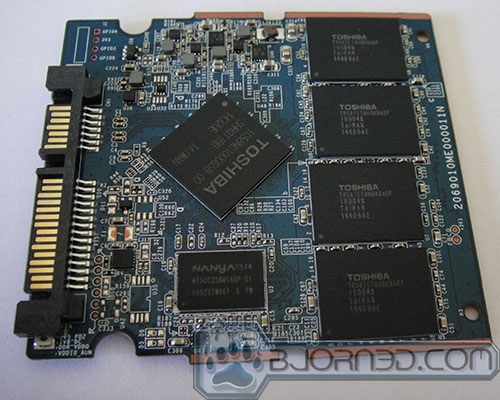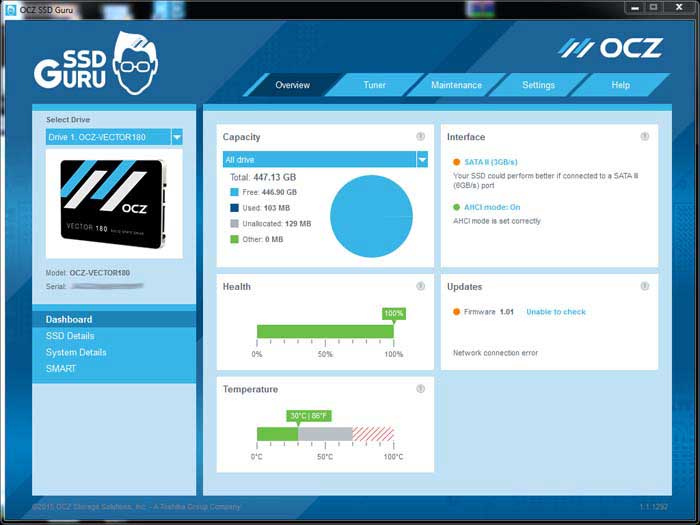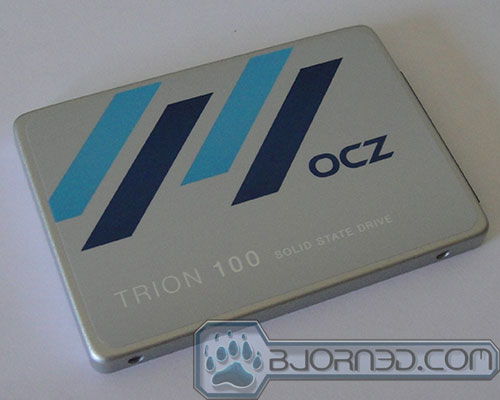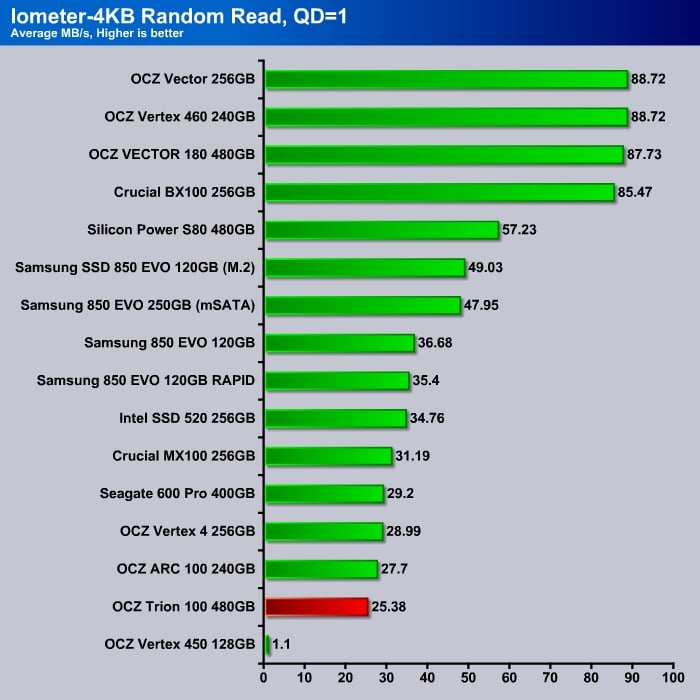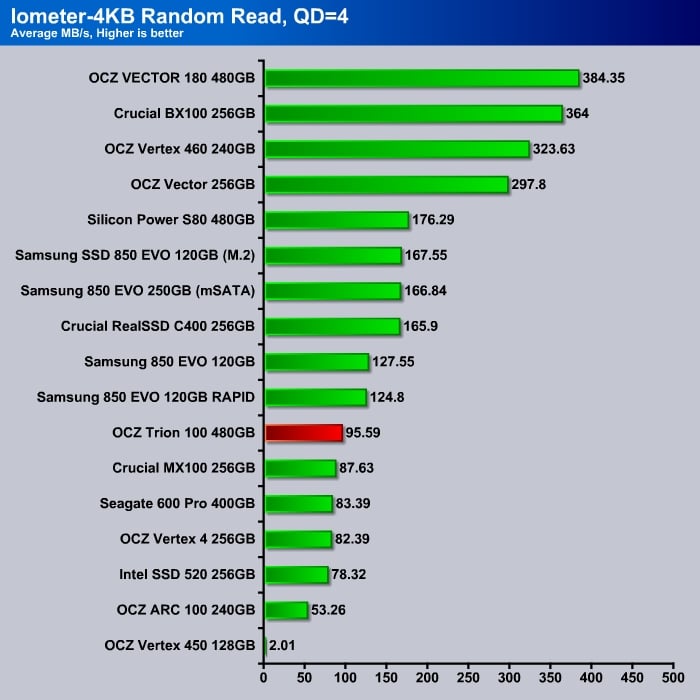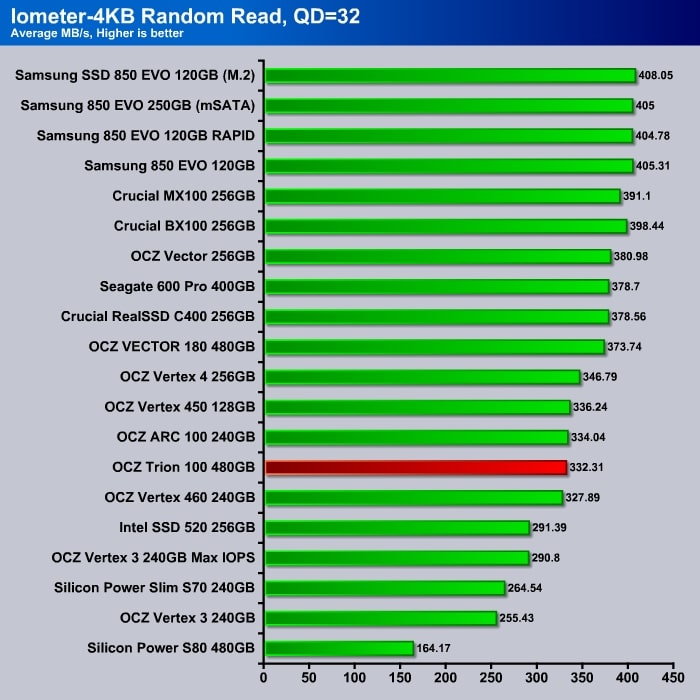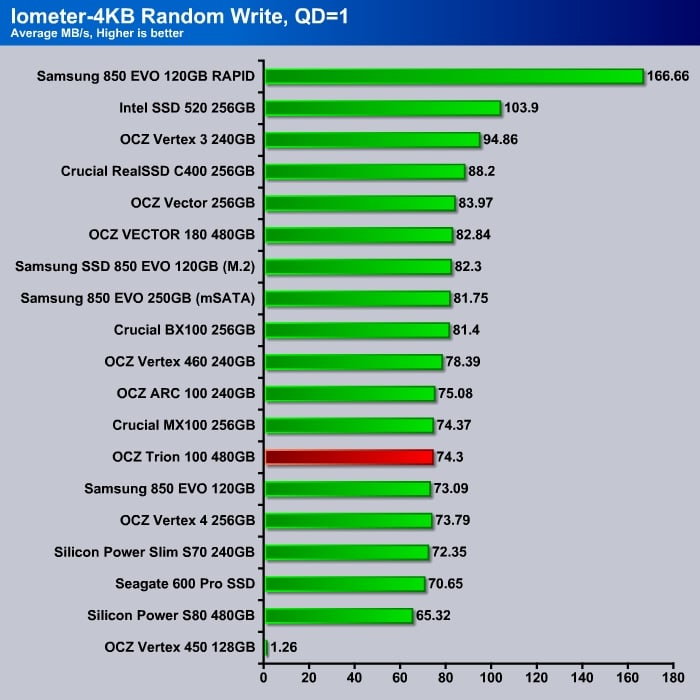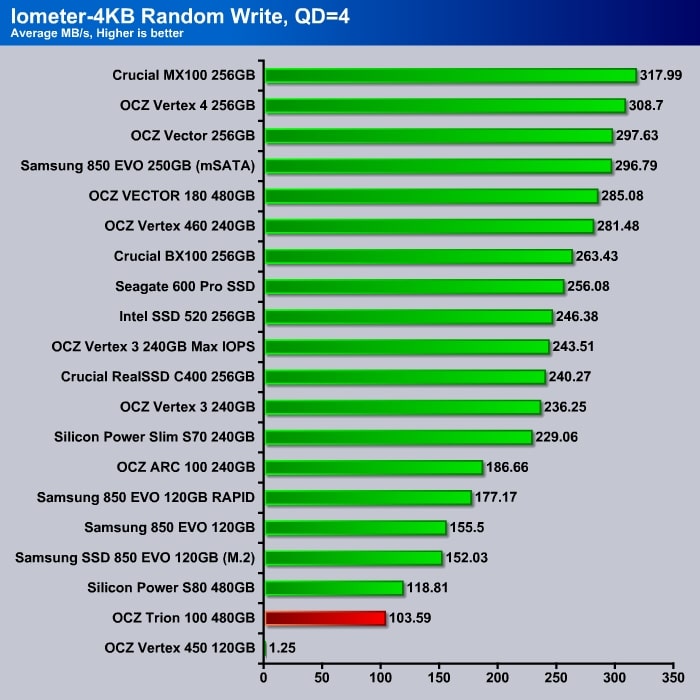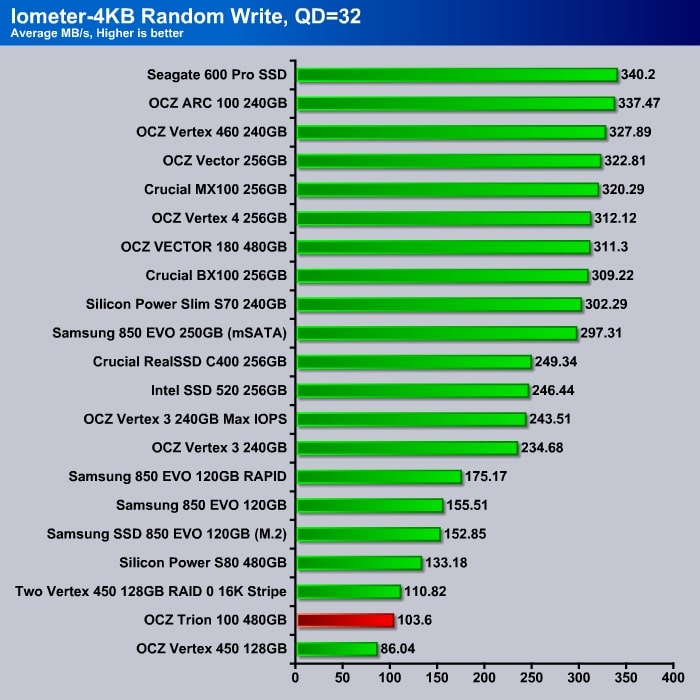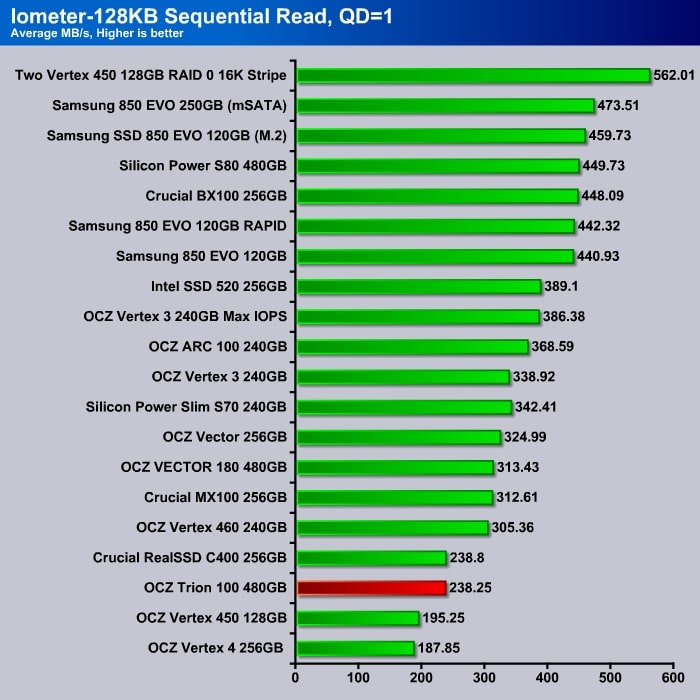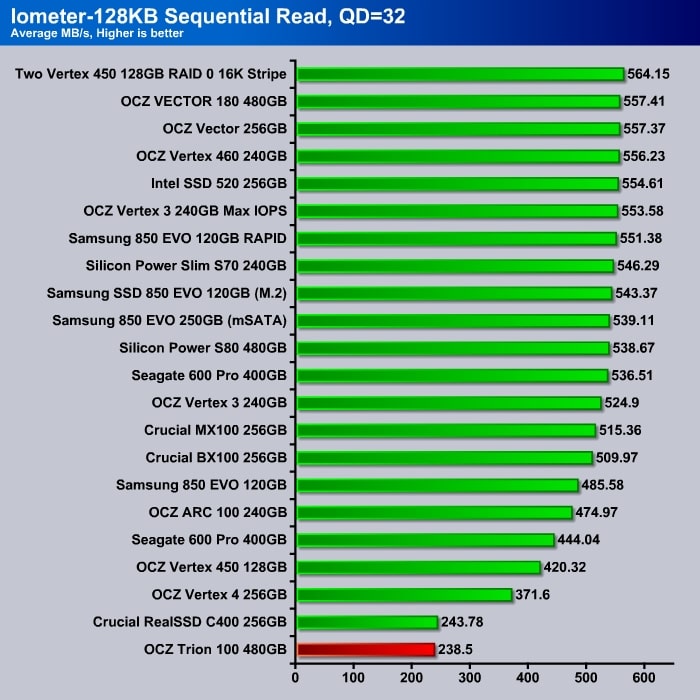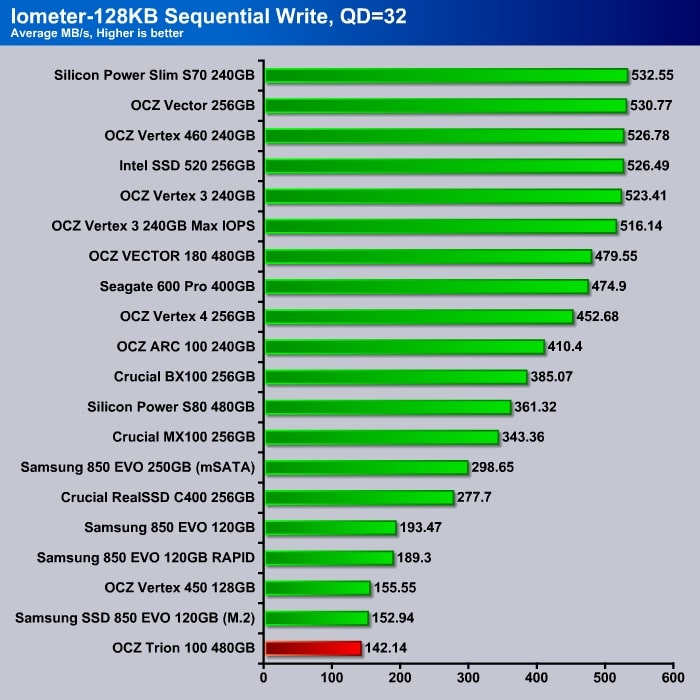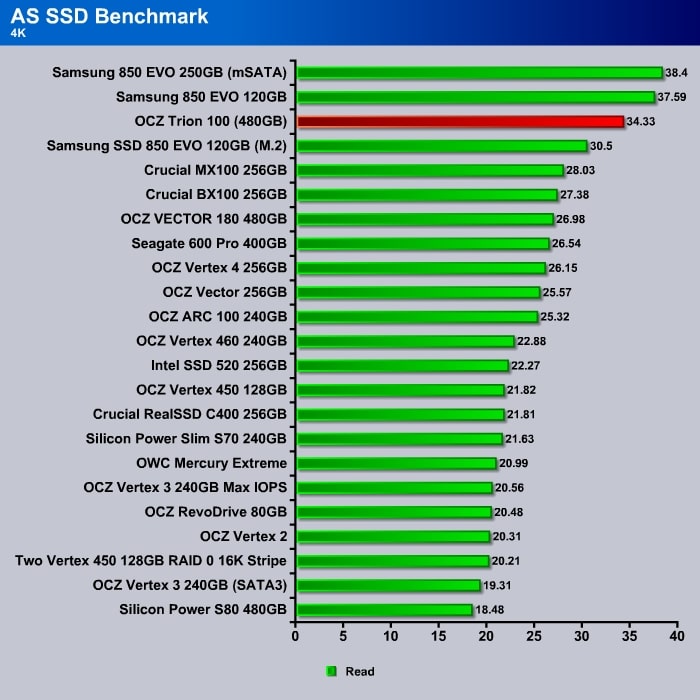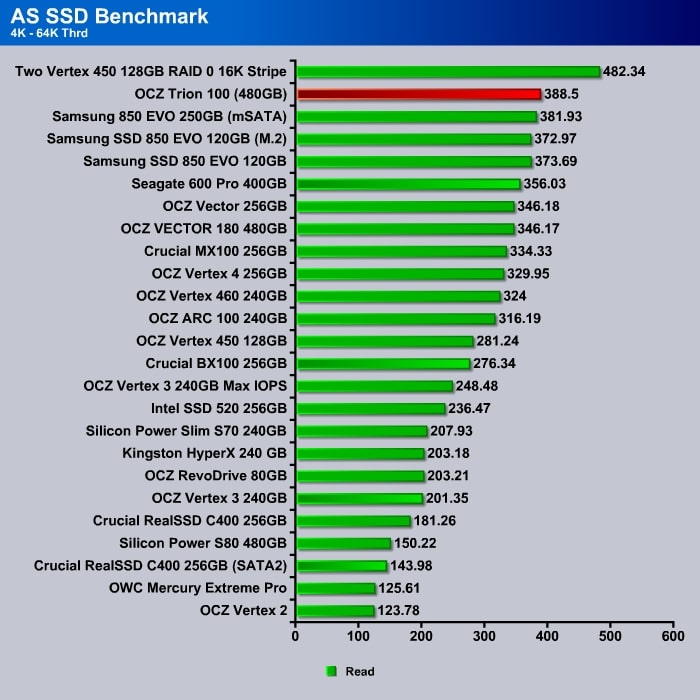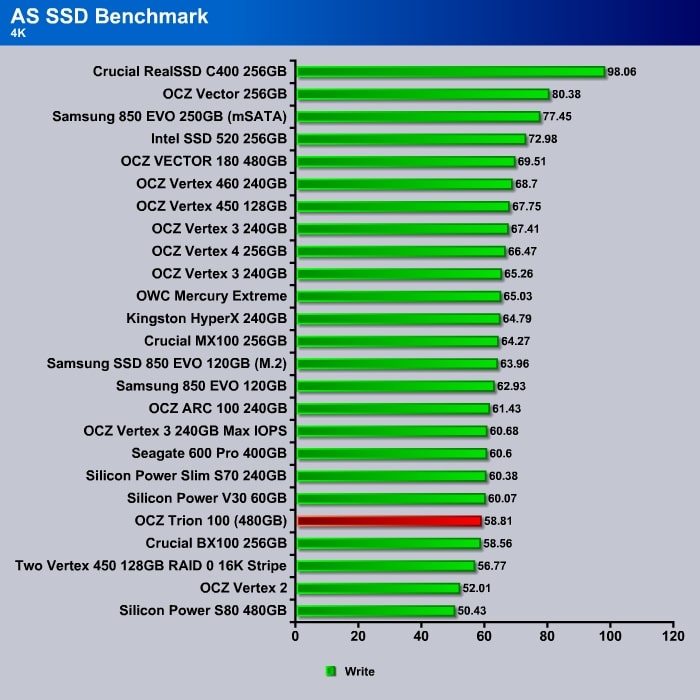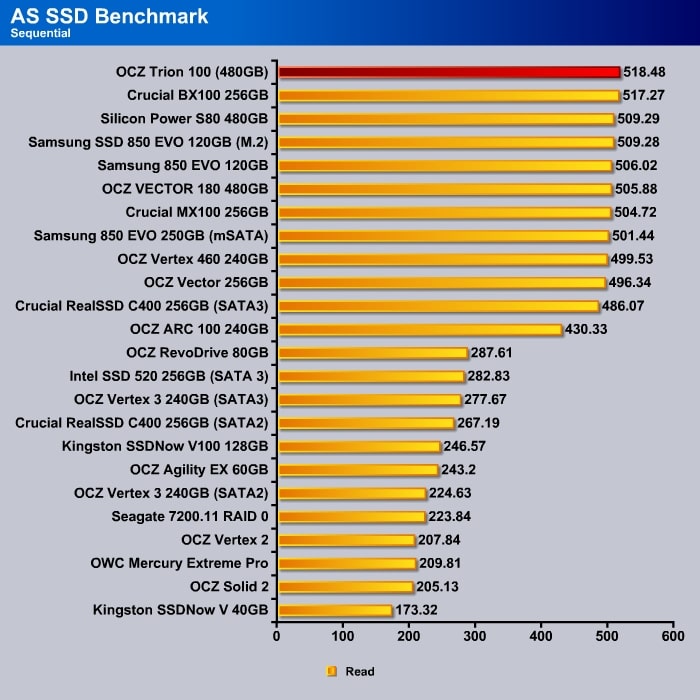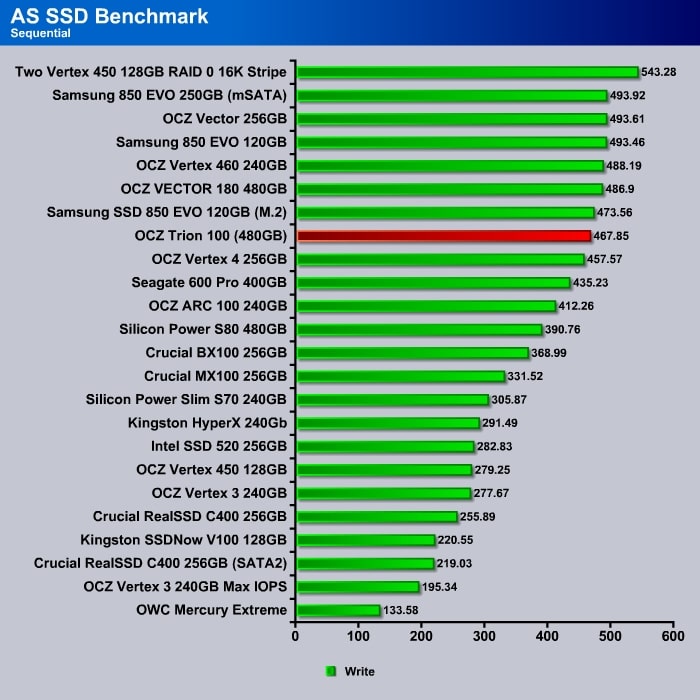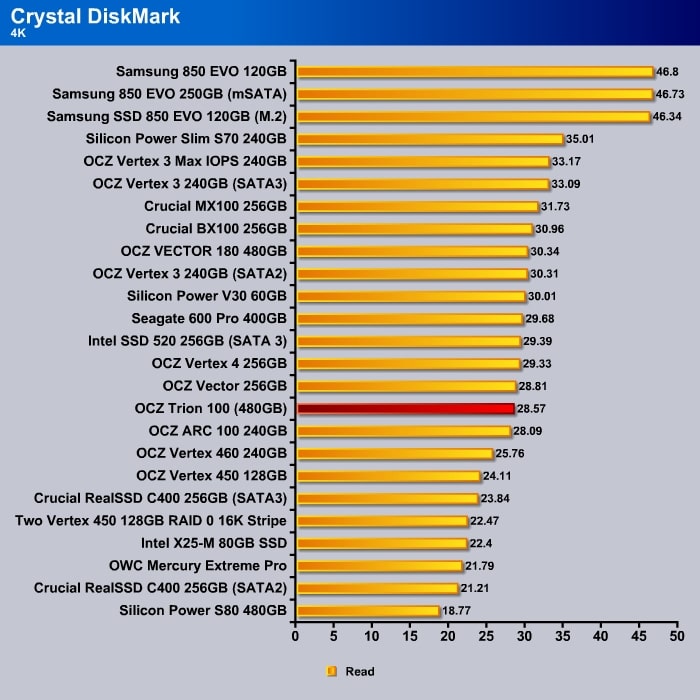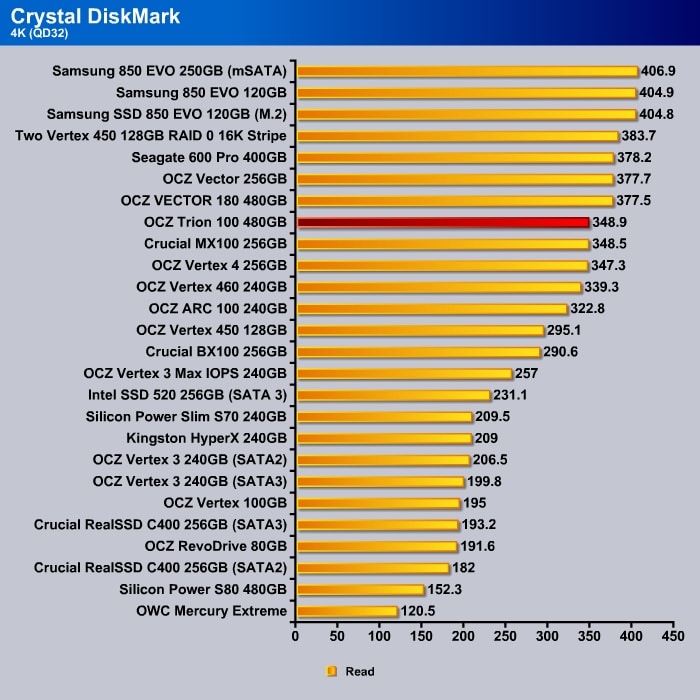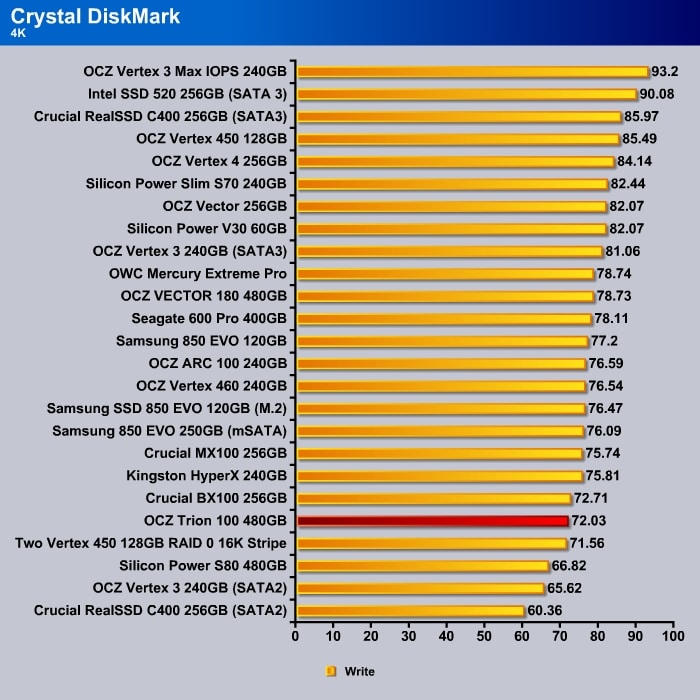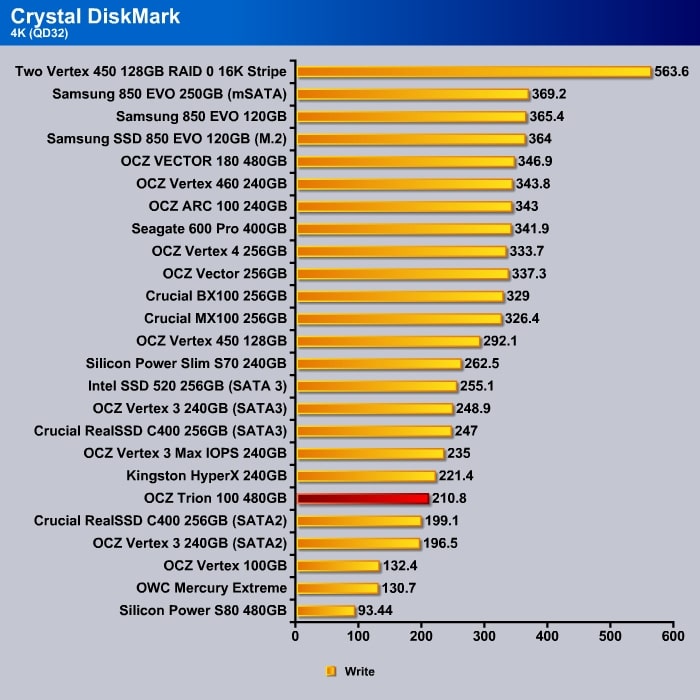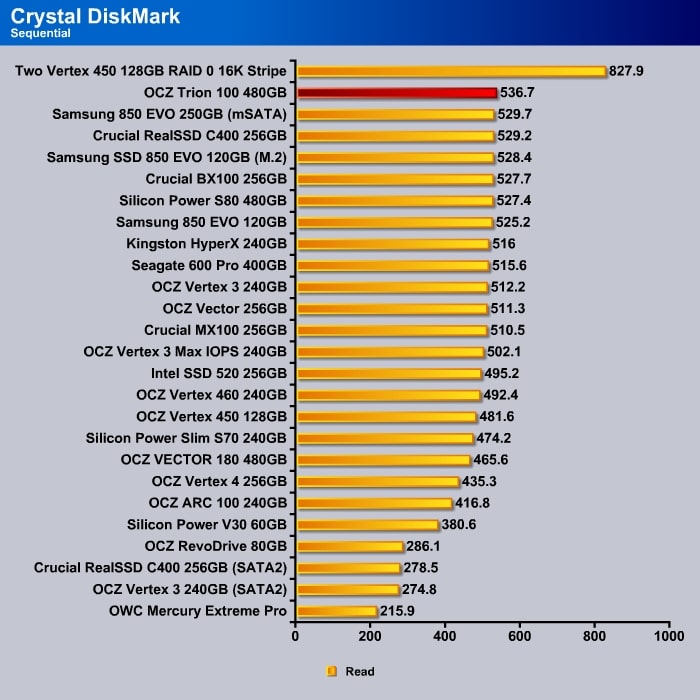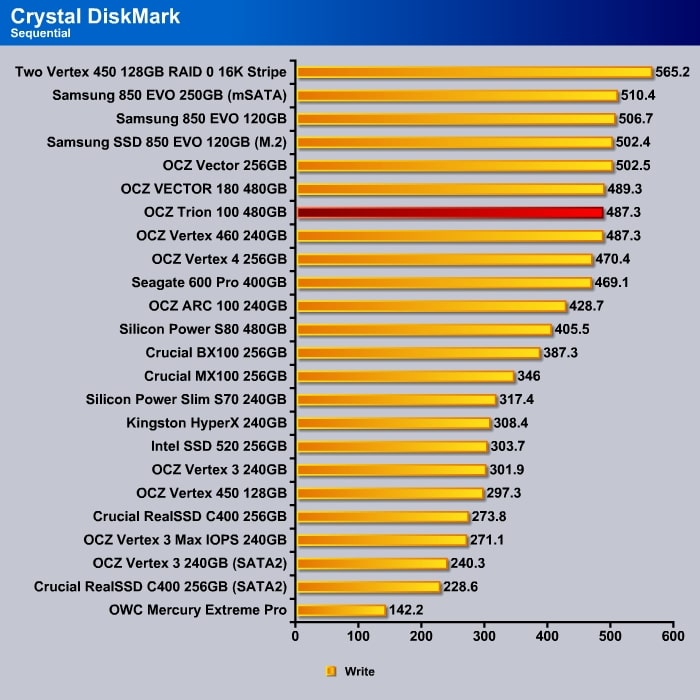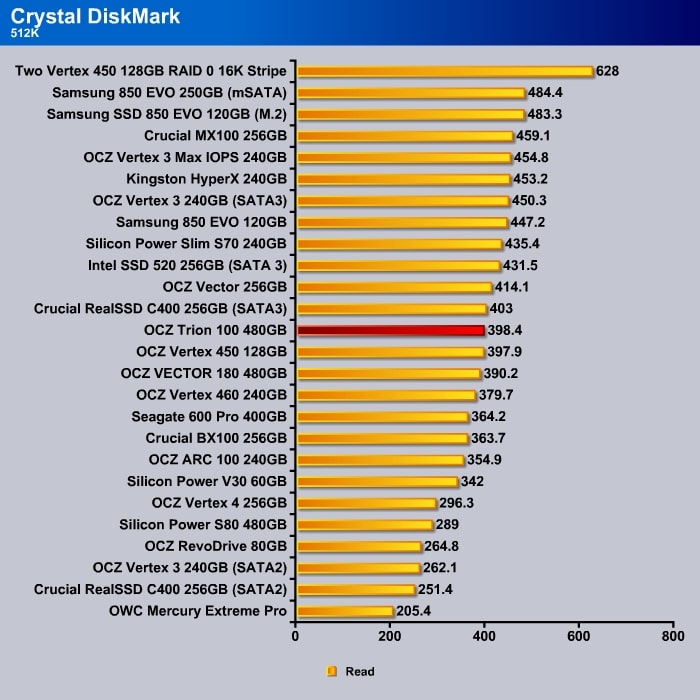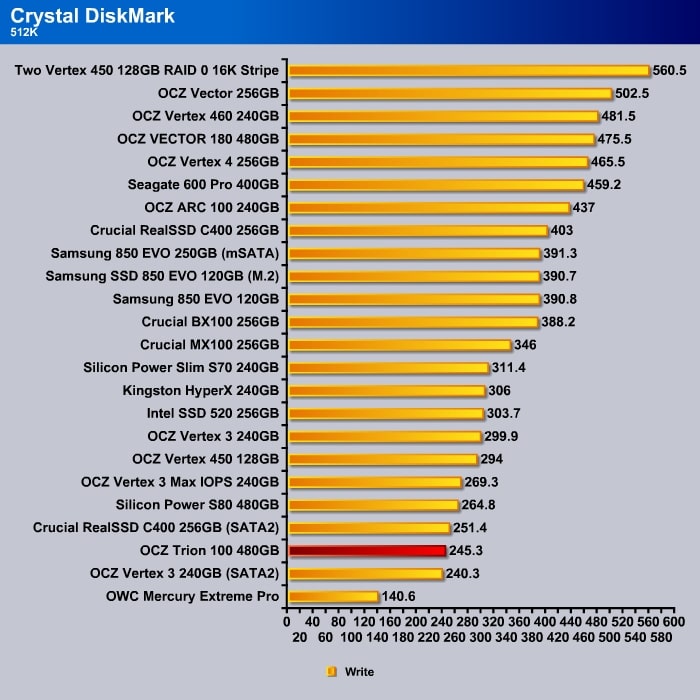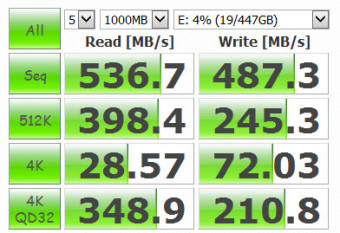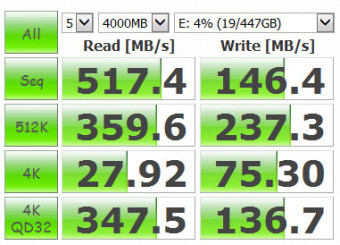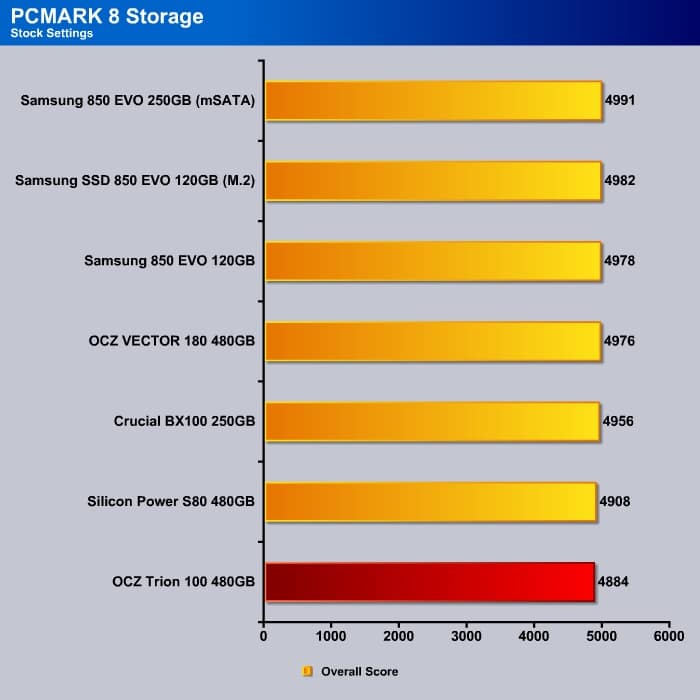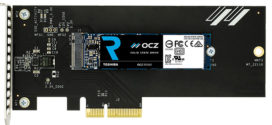INTRODUCTION
Traditionally, OCZ has offered two lines of SSDs: the Vector for the high-end and enthusiasts users, and the ARC for the mainstream and budget market. As you may recall, OCZ was purchased by Toshiba back in 2014 and today, the release of the Trion 100 marks the first new line of SSDs from OCZ since the takeover. It is interesting to see that the first new drive from OCZ since the Toshiba takeover is the value drive Trion 100. This means that the ARC 100 series is probably going to be retired soon. Let’s take a closer look at the latest drive from OCZ.
OCZ is one of the few SSD manufacturers like Samsung and Intel that actually owns its controller from when it acquired Indilinx. Over the last few years, OCZ had been using their own in-house developed Barefoot III controller for their SSDs. However, with the Trion 100, OCZ has opted not to use its own controller and instead uses Toshiba’s TC58 controller and firmware. The Trion, in fact, is 100% Toshiba NAND onboard, and is also Toshiba’s TLC A19 NAND. The switch to a newer controller is expected, since the Barefoot III has begun to show its age. While it has proven to be reliable, it is lagging behind many of the current controllers, especially in the ability to properly support the latest TLC NANDs.
With the Trion 100, OCZ offers storage capacities of 120GB, 240GB, 480GB, and 960GB. This is the first time that OCZ has offered 960GB of capacity for their budget drive.
As you can see, the max sequential read performance across the board is 550MB/s, but the max sequential write improves as the storage capacity increases. The 120GB is rated for 450MB/s; double the capacity and we get a speed bump to 520 MB/s, while the top two capacity drives get a 530 MB/s rating. As for the random read, all drives, except for the 120GB model, are rated at 90,000 IOPS. The 120GB lacks enough die to maximize the parallelism which results in a rating of 79,000 IOPS.
The random write also improves with the storage capacity where we have a rating of 25,000 IOPS for the 120GB model, 43,000 IOPS for the 240GB, 54,000 IOPS for the 480GB, and the 64,000 IOPS for the 960GB. OCZ also includes the steady state random write rating where we can see that it also increases as the storage capacity increases. We have a rating of 2,2000 IOPS for the 120GB drive, 3,200 IOPS for the 240GB, 3,200 IOPS for the 480GB, and the 3,600 IOPS for the 960GB. The random write and the steady state write performance again depends on the storage capacity.
In terms of the endurance, the total bytes written doubles as we move across the storage capacity with the 120GB having a rating of 30TB and the top end 960GB drive having a rating of 240TB. While the smallest drive has the typical rating of 27GB/day, the largest drive is 8 times that, way higher than what we are used to seeing on an SSD. This number is higher than what we have typically seen from OCZ’s 20GB/s/day for consumer drives and 50GB/s for enterprise drives. This is due to the fact that the endurance testing is using the industry standard JEDEC JESD219A client workload as opposed to OCZ’s traditional report on the worst-case 4KB random write workload. In either case, that is plenty of write for the drive, so we should not have to worry about the drive’s write amplification.
Not much information is known with the Toshiba TC58 controller, though it has been suspected that it is a re-branded Phison controller. Compared to the ARC 100, the drive adds support for DEVSLP which allows it to enter deep sleep mode for even lower idle power consumption. OCZ rated the drive to have 6mW of deep sleep power consumption, which is not as low as Samsung’s 850 EVO, but it’s close. Idle power is rated for 830mW, and the active power is rated for 4.8 watts. With support for DEVSLP, we should expect the drive to draw much less power than the drives that do not support such a feature, and we should expect the drive to help with the power consumption and longer usage on a single charge on our mobile system.
Sadly, the controller is missing any sort of encryption. While there are other budget drives such as Crucial BX100 that are also missing encryption, we think it is a feature that should be standard in 2015. Granted, most desktop users probably would not encrypt their drive, so such a feature is probably not going to be missed much. To be fair though, it is a feature that is found on similar priced drives such as the Samsung 850 EVO that offers support for all of the current encryption flavors such as AES-256, TCG Opal 2.0, and eDrive, so it is unfortunate to see that it is missing on the Trion 100.
The Trion 100 employs SLC-like cache for improved write performance, similar to how Samsung has done with the 850 EVO. The Trion 100 reserves 1.5% of the total storage as cache. For our 480GB, this means that 7.2GB of space is reserved for the cache to improve the write performance of the drive.
OCZ bundles the Trion 100 with the SSD Guru application that offers one stop for everything you need on your SSD. Here is where you can get the information about the drive, update its firmware, and optimize the system performance. The software is easy to use and offers a simple way to upgrade the drive’s firmware. It also lets you quickly get the serial number off the drive in the event if you need to do an RMA.
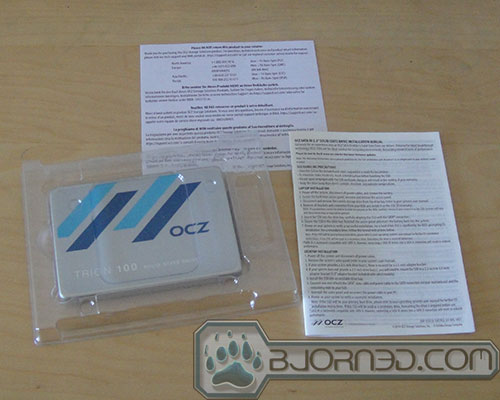
The MSRP for the Trion 100 is $56.99 for the 120GB model, $87.99 for the 240GB, $184.99 for the 480GB, and $369.99 for the 960GB. The pricing for the drive is rather competitive against similar drives such as the Crucial BX100 and the Samsung 850 EVO. Of course, expect the retail price to be slightly different than the MSRP. For example, our 480GB drive is currently listed $30 cheaper at $159.99 on Newegg.
Our review unit is the 480GB capacity, with a retail price of $159.99. This works out to be 33 cents per gigabyte. The drive has a rating of 90,000 IOPS random read, 54,000 IOPS random write, 550MB/s sequential read, and 530 MB/s sequential write. The drive’s steady state write is rated at 3,2000 IOPS. It is the the best in terms of storage capacity and performance if you are considering buying a Trion 100 series SSD.
Test Setup and Benchmarks
Test Setup
| Test Setup | |
| Case Type | None |
| CPU | Intel Core i7 3770K |
| Motherboard | Gigabyte GA-Z77-UD3H |
| Ram | Kingston HyperX 1600 |
| CPU Cooler | Prolimatech Megahalem |
| Optical | None |
| GPU | PNY GTX 670 |
| Case Fans | 120mm Fan cooling the mosfet CPU area |
| Docking Stations | None |
| Testing PSU | Cooler Master UCP 900W |
| Legacy | None |
| Mouse | Microsoft Intellimouse |
| Keyboard | Logitech Keyboard |
| Gaming Ear Buds | None |
| Speakers | None |
Iometer
The random read performance for the Trion 100 is unfortunately not particularly fast.
Even at higher queue, the drive is still lagging behind the competitors.
Sadly, random write for the drive is not something to brag about either. It is falling behind the competitors, placing on the bottom of the chart.
Same story goes with both the sequential read and write where the Trion 100 is placed at the bottom of the pack.
AS SSD
The Trion 100 does much better here at handling uncompressible data
The drive sprints to the top of the chart at 64 threads.
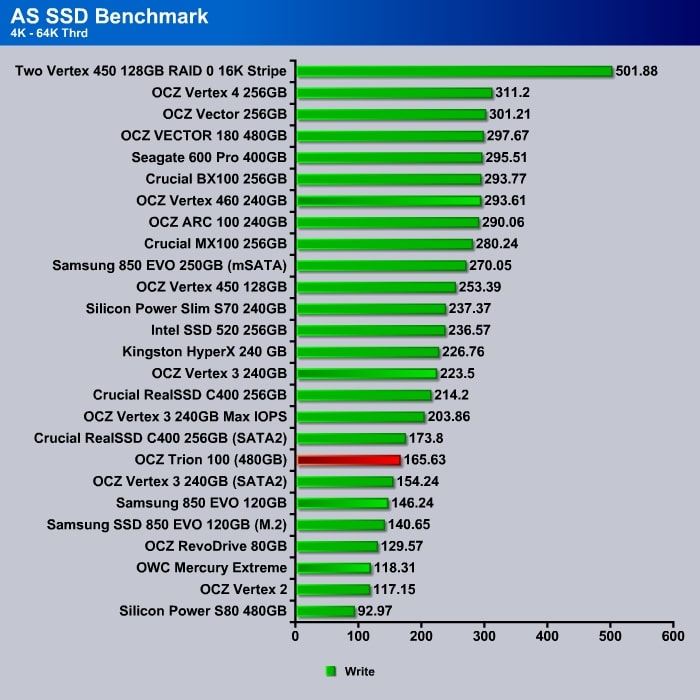
Luckily, the sequential read is good, where it is placed on the top of the chart.
Sequential write is also good. While it is not the fastest, it is certainly competitive enough against other drives.
CrystalDiskMark
The CrystalDiskMark places the Trion 100 random read in the middle of the pack.
Random write again is a big weakness, where the drive is placed on the bottom of the chart.
The sequential read is good here and so is the sequential write. While the sequential write is not the fastest we have tested, it is more than capable to keeping up with other drives on the market.
We ran CrystalDiskMark with a 1GB and 4GB test file to get a sense of how the drive performs with and without the SLC cache.
Left is 1GB testing file; right is 4GB testing file
AS you can see, there is a huge performance hit once the reserved NAND for cache has been used up. The sequential write performance drops from 487 MB/s to 146 MB/s. Luckily, the random write performance does not seem to be impacted, unless the queue depth is high enough.
PCMARK 8
The Trion 100 scored the last place with 4884 points in the PCMark 8 storage benchmark.
Conclusion
The Trion 100 is clearly a budget drive. And it is not just because of its pricing, but its performance also lags behind others on the market. It is often the slowest among the drives we have tested. We can overlook high IO and high queue depth results, as that is not what the drive is targeted for. However, the drive’s low queue performance is also not stellar, where it is often placed on the bottom of the chart. Not only that, but there are instances where the drive is behind other current drives by as much as 50%.
Ultimately, what the OCZ Trion 100 (480GB) is competing against are the similar priced budget drives such as the Crucial BX100 and the Samsung 850 EVO. The drive has a clear market; those who are looking for a rather inexpensive SSD to boost their system performance and want absolutely the best bang for the buck. We still believe the Crucial BX100 or the Samsung 850 EVO would be our choice for the budget drive. However, if you can find the Trion 100 retailed at a cheaper price than either of the other two drives that fit your budget better, then it may be worth considering purchasing it, especially considering the excellent SSD Guru software and the ShieldPlus warranty program.
| Pros | Cons |
|
|
 Bjorn3D.com Bjorn3d.com – Satisfying Your Daily Tech Cravings Since 1996
Bjorn3D.com Bjorn3d.com – Satisfying Your Daily Tech Cravings Since 1996
